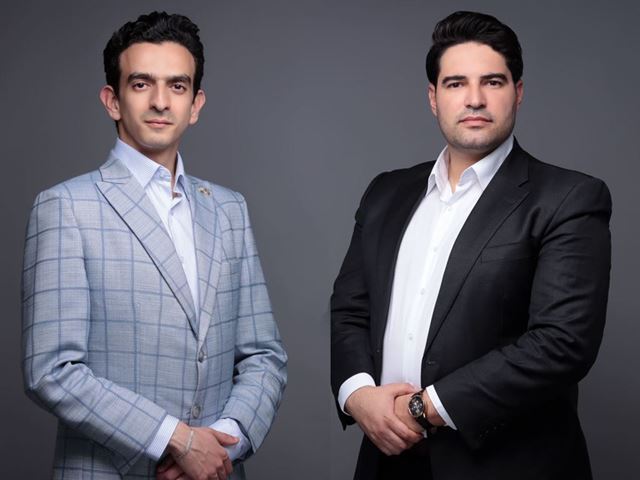
- Latest: Welcome to Auto Futures - Mobility News, Features, Exclusives and More...
- Latest: Automobili Pininfarina Unveils Electric Battista Cinquantacinque
- Latest: UK Self-Driving Startup Wayve Raises Over $1 Billion Led by SoftBank
- Latest: Mercedes-Benz Trucks Sends eActros 600 on Test run in 20 European Countries
- Latest: Hyundai Motor Launches US Hydrogen Fuel Freight Transportation Project
- Latest: How Graphjet Technology is Producing Graphite out of Waste - CEO
Putting Electric Vehicles on the map in Africa, and Beyond - ATLAS E-MOBILITY GROUP CEO, Mohammed Yehya El Bakkali
Adrian Smith
- May 25 2023

ATLAS E-MOBILITY GROUP is a new Anglo-Moroccan technology company which has announced plans to create the first African designed and engineered electric car. Although the startup is UK-based, it will use Moroccan technology and manufacturing capability. It will be supported by global industrial and academic partnerships in the UK and Europe.
"When you look at the environment (in Morocco), there are not many startups operating in the EV space. So, we were thinking, this is a good opportunity for us," ATLAS E-MOBILITY 's Co-Founder and CEO, Mohammed Yehya El Bakkali, told Auto Futures.
Morocco leads the African automotive industry sector, producing a similar number of cars to Italy each year.
"Morocco already has some really good infrastructure for car manufacturing. We have over 250 automotive supplier and the country is moving really forward in this space. We've got two major OEMs producing up to 1 million cars a year," says El Bakkali.
ATLAS was conceived in 2020 by El Bakkali, and Mohammed Hicham Senhaji Hannoun, the company’s Executive Chairman and CTO, with substantial private funding. Its first EV will be a premium, but affordable, SUV.
"The product is something that is classless, everybody can drive it. That is attractive, with a very good design inspired by Moroccan and African identity. And built on proven OEM technologies and engineering capabilities that is recognisable worldwide."
"The reason why we want to produce cars in Morocco is because we have the cost advantage. Supply chain logistics, labour, materials, electricity are much more accessible at a lower cost. And also the government policy is supporting this. That's the reason why we chose Morocco as a manufacturing hub, and it will help us with getting a product into the market as a cost efficient product," he adds.

Opportunities For Startups
El Bakkali sees the African market as a great opportunity for e-mobility developers, as the middle class in Africa is growing, along with its purchasing power.
“We feel strongly that Africa is being ignored by companies in the EV transition. However, no one should underestimate the continent’s determination to advance nor doubt its ability to produce world-leading zero-carbon-free technological solutions. In the field of transportation, these will prove pivotal to helping limit the rise in global temperatures to less than two degrees Celsius," he states.
"If you provide them with the product, and that comes with the infrastructure and all the support system which is affordable, then they will definitely go for it.The consumption behaviour in Africa is massive. There are so many companies that fail to understand the consumer behaviour of Africans. We have the advantage as we come from an African background, so we know what how Africans think and how African consumers think and behave."
Despite initially focusing on Africa, ATLAS intends to move into the Middle Eastern and Europe, and then eventually expand into other markets.
Its strategy also extends beyond production of vehicles to encompass range-enhancing technology, battery and charging networks.
"We are determined to go further and be part of a solution that delivers sustainable economic and environmental benefits to Africa and beyond. Together with our global partners, we will deliver a strategic road map to create a wide arc of advanced range-enhancing technologies, battery, and charging infrastructure to render zero-emission mobility a viable proposition for all," explains CTO Hannoun in a press release.
Finally, we asked El Bakkali for his thoughts on what e-mobility will look like by the end of the decade.
"Globally the transition is definitely going to happen but it's not going to happen as it is expected," he predicts.
"If you also speak about transition, we speak about at least 1 billion cars being electric, and I don't think the car manufacturing industry currently available is able to support that. There's room for startups to emerge in different markets, not just in Europe but also in other emerging markets, to create that momentum of providing electric vehicles because the need is there, and I think it's an empty room."
"There are so many opportunities for so many startups if we do it the right way, with the right approach. The reason why we want to capitalise on existing partnerships and unproven technologies is that we want to get into the market as quickly as possible, so that we can actually be part of the contribution to the zero-emission transition," he concludes.
Popular Categories
